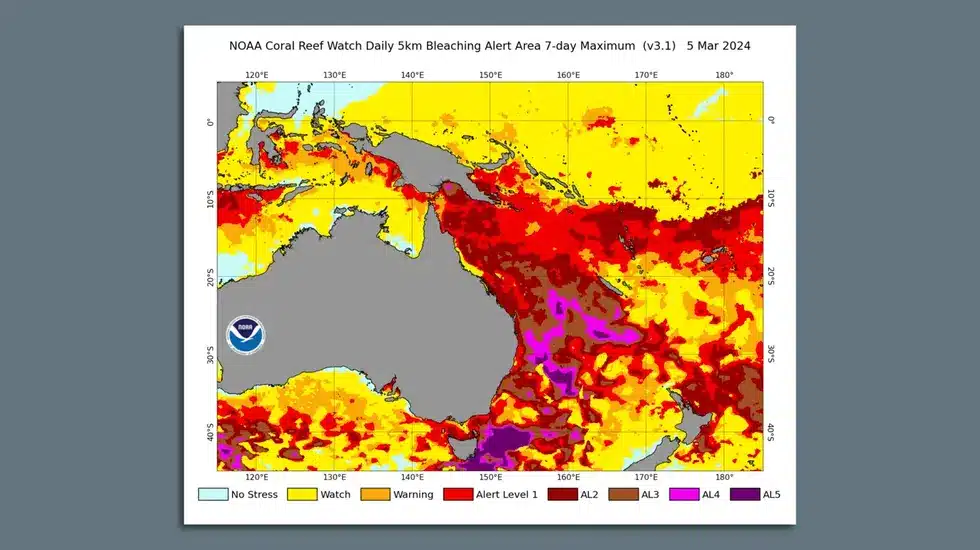About Coral Reef Watch
- It is a free online tool that provides a global analysis of sea surface temperature (SST) and outlooks to identify coral reefs that are at risk of bleaching.
- It is offering the world’s only global early-warning system of coral reef ecosystem environmental changes.
- It remotely monitors conditions that can cause coral bleaching, disease, and death; delivers information and early warnings in near real-time to our extensive and diverse user community; it uses operational climate forecasts to provide outlooks of stressful environmental conditions on coral reefs worldwide.
- Its products are primarily sea surface temperature (SST)-based but also incorporate light and ocean color, among other variables.
- It has been using remote sensing, modeled, and in situ data to operate a decision support system to help all stakeholders around the world prepare for and respond to coral reef ecosystem stressors, predominantly resulting from climate change and warming of the Earth’s oceans.
- This online tool was developed by National Oceanic and Atmospheric Administration (NOAA).
Key facts about Corals
- Corals are marine invertebrates or animals not possessing a spine.
- Each coral is called a polyp and thousands of such polyps live together to form a colony, which grows when polyps multiply to make copies of themselves.
- Corals share a symbiotic relationship with single-celled algae called zooxanthellae.
- The algae provides the coral with food and nutrients, which they make through photosynthesis, using the sun’s light.
- In turn, the corals give the algae a home and key nutrients. The zooxanthellae also give corals their bright colour.
- Australia’s Great Barrier Reef is the world’s largest reef system stretching across 2,300 km.
Also Read: Fourth Mass Coral Reef Bleaching
Q1) What is Coral Bleaching?
It happens when corals experience stress in their environment due to changes in temperature, pollution or high levels of ocean acidity.Under stressed conditions, the zooxanthellae or food-producing algae living inside coral polyps start producing reactive oxygen species, which are not beneficial to the corals.
Source: Fourth global mass coral bleaching? Great Barrier Reef severely affected, corals seen dying
Last updated on November, 2025
→ Check out the latest UPSC Syllabus 2026 here.
→ Join Vajiram & Ravi’s Interview Guidance Programme for expert help to crack your final UPSC stage.
→ UPSC Mains Result 2025 is now out.
→ UPSC Notification 2026 is scheduled to be released on January 14, 2026.
→ UPSC Calendar 2026 is released on 15th May, 2025.
→ The UPSC Vacancy 2025 were released 1129, out of which 979 were for UPSC CSE and remaining 150 are for UPSC IFoS.
→ UPSC Prelims 2026 will be conducted on 24th May, 2026 & UPSC Mains 2026 will be conducted on 21st August 2026.
→ The UPSC Selection Process is of 3 stages-Prelims, Mains and Interview.
→ UPSC Result 2024 is released with latest UPSC Marksheet 2024. Check Now!
→ UPSC Prelims Result 2025 is out now for the CSE held on 25 May 2025.
→ UPSC Toppers List 2024 is released now. Shakti Dubey is UPSC AIR 1 2024 Topper.
→ UPSC Prelims Question Paper 2025 and Unofficial Prelims Answer Key 2025 are available now.
→ UPSC Mains Question Paper 2025 is out for Essay, GS 1, 2, 3 & GS 4.
→ UPSC Mains Indian Language Question Paper 2025 is now out.
→ UPSC Mains Optional Question Paper 2025 is now out.
→ Also check Best IAS Coaching in Delhi

















